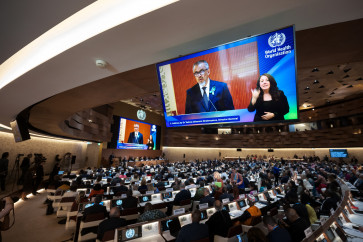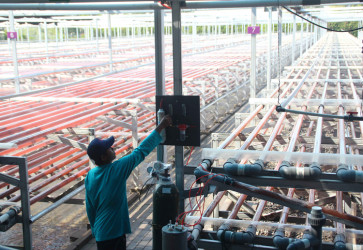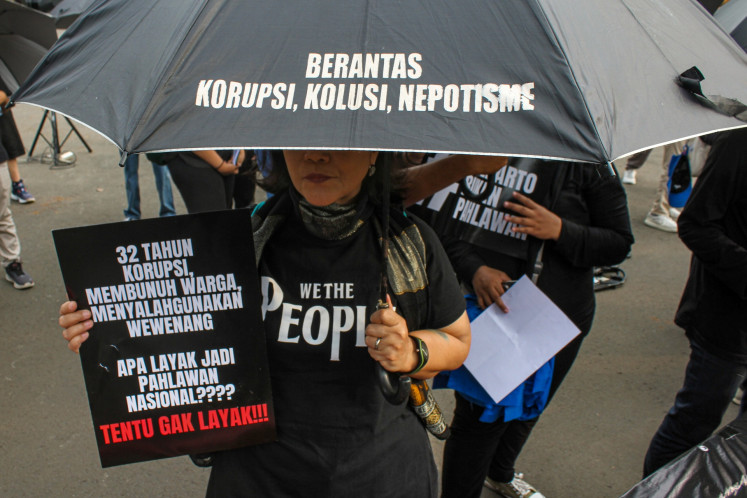Your letters: IPOP responds
Edi Suhardi’s op-ed piece “Business engagement in green activism: Is it fair or inappropriate?” in the June 10 edition of The Jakarta Post provides a distorted and inaccurate view of the Indonesia Palm Oil Pledge (IPOP) and the commitment of its signatories toward a sustainable palm oil sector in Indonesia
Change text size
Gift Premium Articles
to Anyone

E
di Suhardi’s op-ed piece “Business engagement in green activism: Is it fair or inappropriate?” in the June 10 edition of The Jakarta Post provides a distorted and inaccurate view of the Indonesia Palm Oil Pledge (IPOP) and the commitment of its signatories toward a sustainable palm oil sector in Indonesia.
The article further made a number of incorrect statements about IPOP, which may seem like facts to readers with incomplete knowledge about the pledge, ongoing efforts and Indonesia’s palm oil industry.
Suhardi’s comparison of the IPOP to the Indonesia’s national standard Indonesia Sustainable Palm Oil (ISPO) and the global standard of the Roundtable on Sustainable Palm Oil (RSPO) is misleading. The IPOP is not, and has never claimed to be, a new standard. IPOP signatories each have their own sustainability policies that had been developed and announced prior to the establishment of the pledge.
We also dispute Suhardi’s claim that the IPOP “could potentially alienate smallholders”. Individually, IPOP signatories have longstanding programs to assist smallholders in their supply chains to transition toward sustainable practices. In parallel, IPOP management has also developed collaborative programs on the ground to further these efforts, focusing on independent smallholders, which often had been left behind.
Finally, it is condescending how the article generalized that private sector interest in environmental stewardship could only stem from interest in accessing green markets, to pacify watchdogs and/or
greenwashing. Agribusinesses, perhaps more than many other businesses, have a vested and direct interest in ensuring the environment on which they depend is healthy, and to respect the communities within which we work. Sustainable practices are essential for long-term palm oil production.
Nurdiana Darus
Executive director of IPOP management
Jakarta









